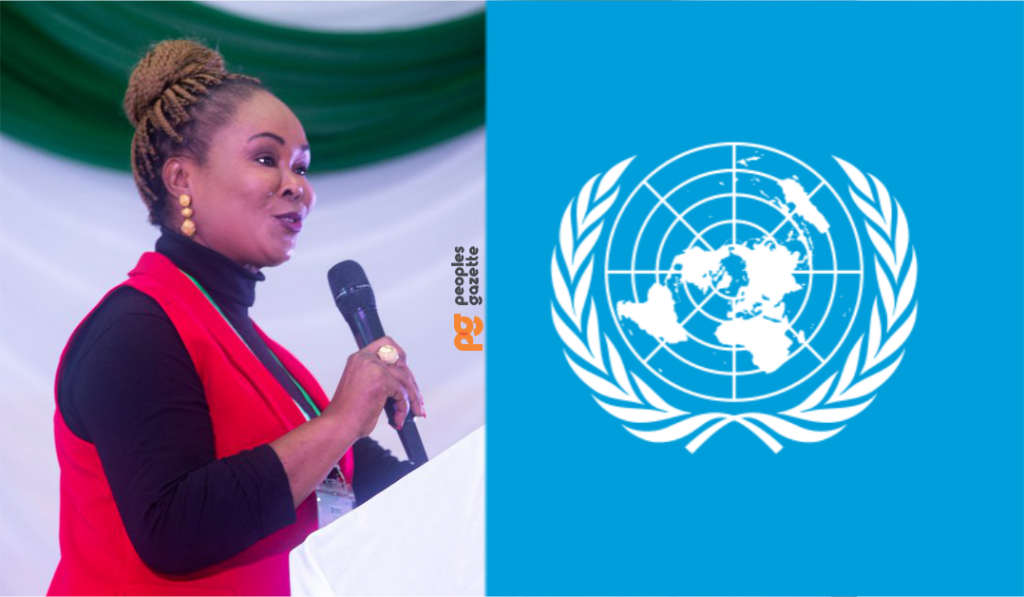Press Statement, October 17, 2023
The Promised Nigerian Suit against the United Nations: A Case for the Proper Socialisation of Cabinet Members
By
Babafemi A. Badejo, Ph.D
Today, October 17, 2023, it was widely reported in the media that Ms. Uju Kennedy-Ohaneye, Nigerian Minister of Women Affairs, while on an AIT interview yesterday, in an unexpected, haphazard manner gave the United Nations (UN) a one-month ultimatum from October 16, 2023 to November 15, 2023 to render published account on all the monies received in the name of Nigeria from donors. The Minister promised to proceed to file a suit on November 16, 2023, against the UN if the accounts are not rendered. But can an International Organisation like the UN be dealt with in such a cavalier manner?
Asking for accountability and transparency is very proper. The spirit of seeking answers to lighten up grey areas that may be indicative of corruption is a great idea. Experience shows that some UN officials are corrupt, and some have accordingly been jailed. However, there are laid down arrangements for such requests by a sovereign nation. Not to follow the laid down procedure and embarking on media grandstanding can only portray Nigeria in bad light. Nigeria is telling the world that it lacks the requisite leadership and structures for appropriate operation in the community of nations.
The United Nations system’s counterpart in Nigeria is the Ministry of Foreign Affairs. Even, if the Minister of Foreign Affairs, after exhaustive dialogue within his Department of International Organisations has decided on the need to request for transparency from the UN, it is expected that he would take the case to the Federal Executive Council (FEC) before articulating, if at all, such a weighty position at a media show.
President Bola Ahmed Tinubu addressed the UN General Assembly last month and met with the UN Secretary-General. He was not reported to have indicated that Nigeria was experiencing a lack of accountability and transparency with the UN entities working in Nigeria. So, it is a shock that a Nigerian Minister is so amateurish in diplomatic relations. Our inadequacies from lacking the appropriate arrangements for the necessary training and socialisation of new entrants into office are being shown to the world.
In addition, one expects that a Minister of Nigeria would have been apprised of the importance of diplomatic and functional immunities that the UN and its officials enjoy. In which Court is our Minister of Women Affairs intending to embark on her frolic? What would be the charges? What is the expected outcome of such a litigation process? Would a more organized strategic follow-through reporting of officials through diplomatic channels against a media inspired, arrogant, poorly thought-out litigation choice not have yielded a much better outcome?
President Tinubu needs to have his Ministers coordinated and appropriately socialised into their respective duties. The UN must readily support anti-corruption, including allegations against its own staff members when evidences are adduced through appropriate mechanisms.
The Minister of Women Affairs will do well to address corruption in her Ministry by collaborating with the ongoing probe, by at least one of Nigeria’s anti-corruption agencies. Charity is better if it begins at home. She needs to be more procedural and take advantage of available expertise in the government she is a part of. She could also make a big difference by embarking on ways to empower women and thereby reduce national poverty.
*Babafemi A. Badejo, author of a best-seller on politics in Kenya, was a former Deputy Special Representative of the UN Secretary-General for Somalia, and currently a Legal Practitioner and Professor of Political Science/International Relations, Chrisland University, Abeokuta. Nigeria.

